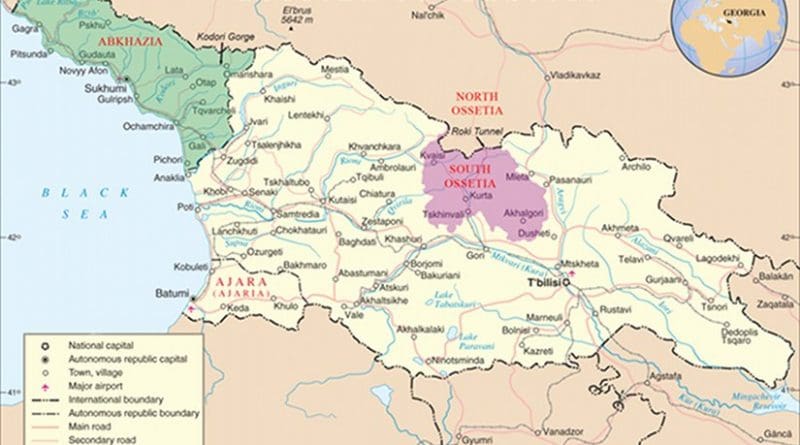Some Bridges You Can’t Cross: The Russian-Abkhaz Border Dispute – OpEd
Given their reliance on Russia, Moscow is often seen as having undue influence in the de-facto states of Abkhazia, South Ossetia, and Transnistria. And while their survival may be contingent on Russian support, disputes often arise between the patron and the beneficiary.
Most recently, a dispute has emerged between Russia and Abkhazia over the tiny village of Aibga, which is situated on the de-facto border between the pair.
Following the 2008 Russo-Georgian War, Moscow recognised both Abkhazia and South Ossetia. Since then, Abkhazia has become increasingly reliant on Moscow, who props up the local budget and subsidizes gas.
However, after such a bloody struggle for independence, the Abkhazians take their sovereignty seriously, and, unlike nearby South Ossetia, oppose their country’s integration into the Russian Federation. This stance has resulted in an ongoing dispute between Abkhazia and Russia, as both sides claim ownership over the village of Aibga.
The Origins of the Dispute
The dispute over where the official border between Abkhazia and Russia should lay has been going for some time now. According to the Abkhaz, the Psou river delineates the border, with everything to the north belonging to Russia and everything to the south belonging to Abkhazia. However, some in Russia argue that Soviet cartographers from the 1920s included Aibga within Russia.
Following the Georgian-Abkhaz war, the village was all but abandoned by the separatist authorities, leaving residents without regular electricity or water. This changed when officials from the Krasnodar region of Russia visited the area, restored the electricity, and posted a policeman in the village. Since then, Russia has provided all the village services. Besides the crucial services being provided by the Russian government, the region is also only accessible from Russia, increasing Moscow’s claims to the village.
For the Abkhaz, the village indisputably falls under their jurisdiction. Considering the Abkhaz have only recently won independence after a long history of subjugation, many claim they are unwilling to give up ‘a single meter.’ Moreover, according to the Abkhaz narrative, the village was used as a refuge by locals seeking shelter during the war. Hence, it is of great national significance.
Recent controversy
Recently, a footbridge was built in the village by the Russians without Abkhaz consent. The building of the bridge was criticized by the Abkhaz opposition, who issued a joint statement demanding an explanation from the government. Some even regarded it as a violation of Abkhazia’s ‘territorial integrity.’ However, most were quick to blame the confusion on the Abkhaz-Russian border commission, whose vague statements threatened the ‘fraternal’ relations between the pair. In response, the government organized a closed session of the parliament to discuss the issue.
What is really at stake
Two main factors are driving the dispute. Firstly, from an Abkhaz perspective, the potential land swap is hugely unpopular, with some claiming it could destabilize the country. Secondly, elites from both sides of the Psou are attracted by the region’s natural resources. Dense forests surround Aibga, which are particularly attractive to both Russian and Abkhaz logging firms.
Conclusion
The border dispute between the pair is unlikely to damage the traditionally positive relations between them, as Abkhazia’s survival depends on Russian support. It does, however, highlight that de-facto states do not follow Russia unconditionally, and that these unrecognised entities take their hard-fought sovereignty seriously.

